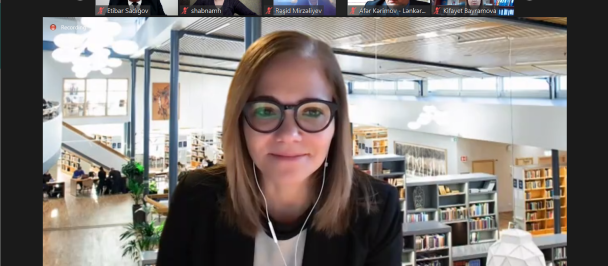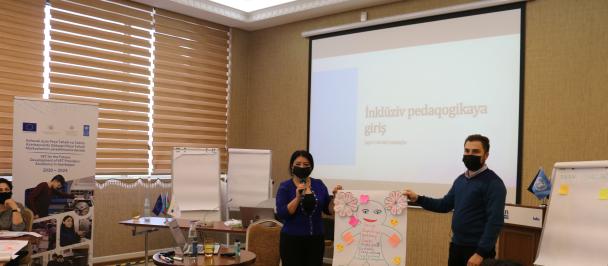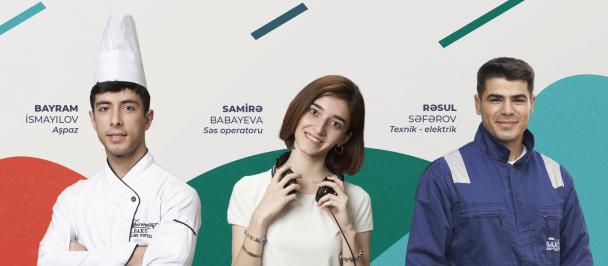Ramin Binnatov has taught himself how to repair all kinds of IT equipment and his skills are in high demand amongst his friends. But for all his self-taught knowledge, he has found it almost impossible to get a job that makes a regular living.
His earliest ambition was to be a professional swimmer, but he lost the use of his legs in a training accident and has had to use a wheelchair ever since.
Aged 41 now, and married with a two-year-old daughter, he feels that social attitudes to people with disabilities are a major obstacle to employment.
Azerbaijan was one of the first countries in the world to ratify the UN Convention on the Rights of Persons with Disabilities in January 2009 and the reforms initiated in 2018 the area of employment and social protection are developing at an impressive pace.
However, people with disabilities still face difficulties and barriers that often remain invisible to the broader public. Exclusion from education and training mean that many people with disabilities who are employed typically occupy low-paid and menial positions, often in segregated workplaces, losing out on opportunities to realize their full potential.
“I’ve always hated being unemployed. I know I have useful skills to offer”, says Ramin. That’s why I never gave up.”
Improving conditions for people with disabilities and helping people like Ramin to participate as an equal member of society is a long-term commitment of the Government of Azerbaijan and UNDP.
UNDP has been working closely with the Ministry of Labour and Social Protection of the Population and the State Employment Service of Azerbaijan to develop and pilot successful new models of increasing inclusion and overcoming obstacles that stand in the way of success for people with disabilities.
One of these inclusive models is a new employment measure aimed at helping some 500 unemployed people with disabilities to start up their own businesses by the beginning of 2020.
To help participants bring their business ideas to life, the Self-Employment Programme provides free training in entrepreneurship as well as advice and financial support in the form of equipment and/or materials.
Ramin first heard about the programme in September last year and was immediately interested in taking part.
“All the time I’ve been unemployed I’ve kept myself busy by helping friends out with their IT problems – software and hardware. I often daydreamed about starting up a proper servicing shop, but I didn’t have the know-how or the confidence to try.”
Once his application was accepted, Ramin successfully completed an 8-day course on developing basic business entrepreneurship skills, including negotiations and communications skills as well as session on confidence-building and stress management.
With the support of expert business mentors, Ramin drafted his business plan for opening a shop to repair computers and phones, while also offering software development for companies.
“Ramin was a very hard-working, helpful and talented participant on the course. His enthusiasm was inspiring others” says UNDP Monitoring Officer Vusala Garayeva. “In fact his skills came in handy more when our computers crashed one time during a training session! I’m really hopeful that his idea will be a success.”
The Self-Employment Programme has already attracted many people with disabilities from the regions of Ganja, Mingachevir, Sumgayit, Shamkir, Zaqatala, Goychay, Barda, Shamakhi, Fizuli, Absheron, Sabunchu and Binagadi, and all of the participants have now successfully completed the training sessions.
The selection process is currently underway to decide which applicants will be awarded grants and customised support and coaching to help develop their ideas into feasible business plans and have their own companies up and running early this year.
***************
Story by Sandra Ismanovski
***************

 Locations
Locations

